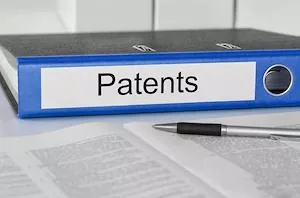ARTICLE
Prior Appraisal Not A Requisite When Damages Cannot Be Assessed Before Trial
December 5, 2013

On February 8, 2013, in the case “Sandoz Aventis S.A. v. Sandoz S.A. on patent infringement and damages”, Division 2 of the National Court of Appeals on Federal Civil and Commercial Matters examined the requirement of appraising the amount claimed when filing a complaint for patent infringement.
The plaintiff, Sandoz Aventis S.A., had filed a lawsuit for patent infringement, and stated at that point that the amount claimed could not be determined in the complaint because it depended on the proof of sales of the infringing product, which would be submitted during the prosecution of the case.
In their response, Sandoz filed a motion to dismiss arguing that the complaint lacked an essential requirement, namely the specific amount claimed, and thus affected their right to an adequate defense in court.
The district court rejected the defendant’s motion and the Court of Appeals confirmed this decision, based on the following arguments:
a. a motion to dismiss is admissible only when the alleged defects of a complaint are of such nature and importance that it is difficult to understand the claim itself, so that the defendant is rendered truly defenseless and cannot file adequate counter-arguments and offer evidence;
b. in trademark infringement cases this Court has repeatedly held that, as a rule, the lack of determination of the amount claimed is not sufficient to warrant a motion to dismiss; and
c. Section 330, subsection 6, of the Argentine Code of Civil and Commercial Procedure allows plaintiffs not to determine from the outset of the litigation process the specific amount claimed when this depends on the evidence to be produced during the process.
This case follows the rule that, in case of an alleged patent infringement, the plaintiff is exempted from determining the exact amount claimed when this can only be established once the evidence has been produced (for instance, by having an expert accountant determine the volume of sales of the infringing product). This criterion is also followed by this Division and Division 3 of the same Court of Appeals in trademark infringement actions.
The plaintiff, Sandoz Aventis S.A., had filed a lawsuit for patent infringement, and stated at that point that the amount claimed could not be determined in the complaint because it depended on the proof of sales of the infringing product, which would be submitted during the prosecution of the case.
In their response, Sandoz filed a motion to dismiss arguing that the complaint lacked an essential requirement, namely the specific amount claimed, and thus affected their right to an adequate defense in court.
The district court rejected the defendant’s motion and the Court of Appeals confirmed this decision, based on the following arguments:
a. a motion to dismiss is admissible only when the alleged defects of a complaint are of such nature and importance that it is difficult to understand the claim itself, so that the defendant is rendered truly defenseless and cannot file adequate counter-arguments and offer evidence;
b. in trademark infringement cases this Court has repeatedly held that, as a rule, the lack of determination of the amount claimed is not sufficient to warrant a motion to dismiss; and
c. Section 330, subsection 6, of the Argentine Code of Civil and Commercial Procedure allows plaintiffs not to determine from the outset of the litigation process the specific amount claimed when this depends on the evidence to be produced during the process.
This case follows the rule that, in case of an alleged patent infringement, the plaintiff is exempted from determining the exact amount claimed when this can only be established once the evidence has been produced (for instance, by having an expert accountant determine the volume of sales of the infringing product). This criterion is also followed by this Division and Division 3 of the same Court of Appeals in trademark infringement actions.
This insight is a brief comment on legal news in Argentina; it does not purport to be an exhaustive analysis or to provide legal advice.